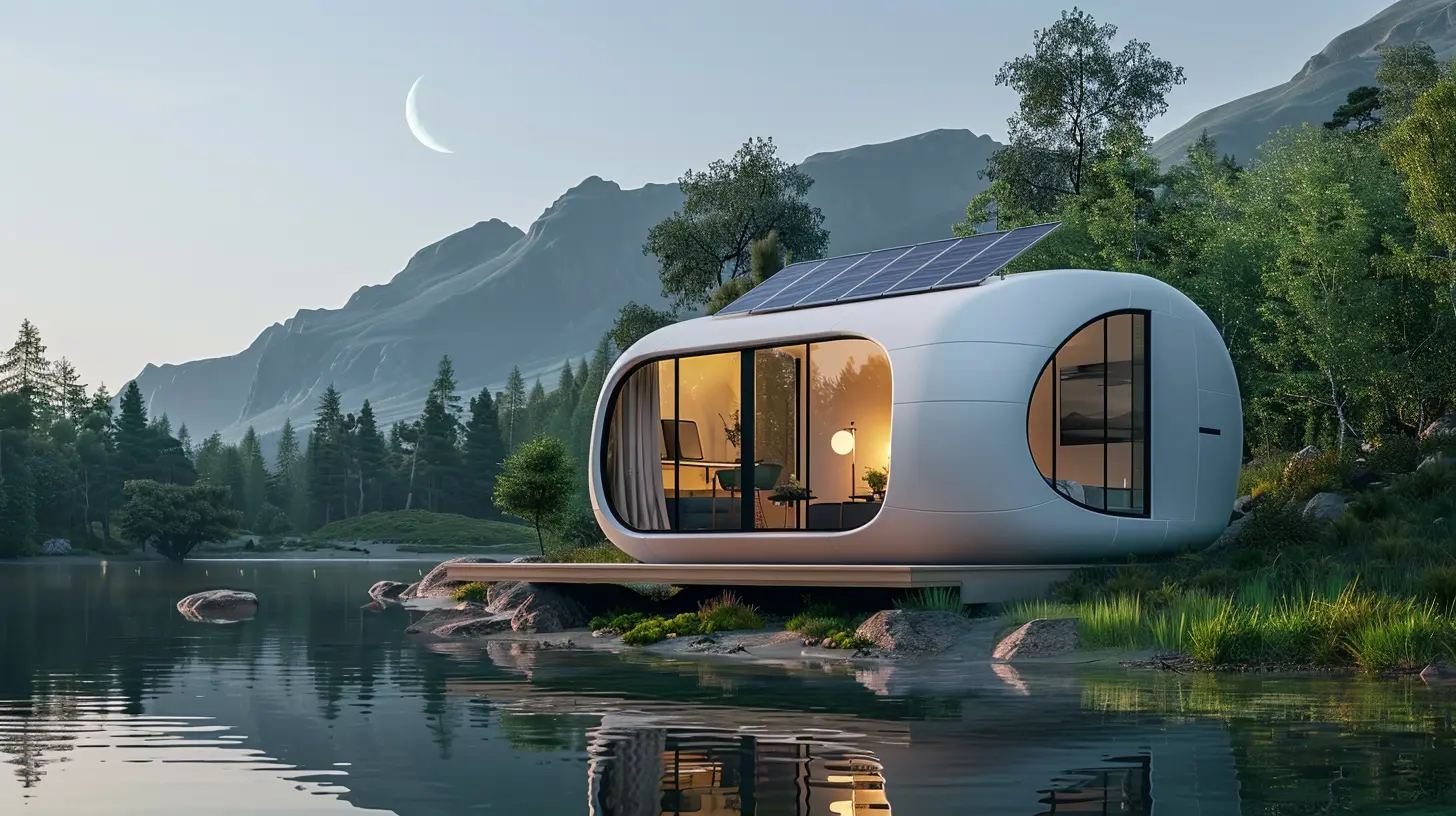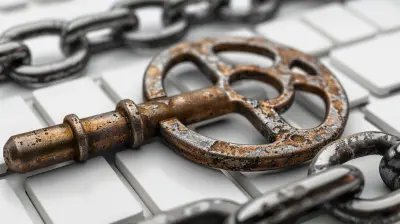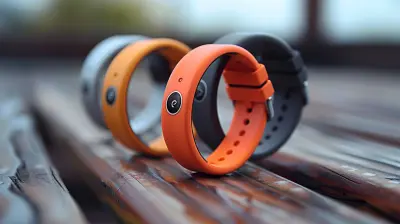The Impact of Battery Technology on Off-Grid Living
6 September 2025
In today’s fast-paced world, there’s a growing interest in off-grid living. People crave the freedom to live independently, away from the hustle and bustle of city life. But let’s be real — going off-grid isn’t as simple as packing your bags and heading into the wild. It calls for some serious planning, especially when it comes to energy. That’s where battery technology steps in and makes off-grid living not only possible but also more practical and sustainable in the long run.

Why Batteries Matter in Off-Grid Living
Imagine this: you’re living off the grid, miles away from traditional power sources. There’s no utility company to call when the electricity goes out, and solar panels alone can’t provide energy during nighttime or cloudy weather. How do you store energy when the sun isn't shining? That’s where batteries come in, acting as your energy bank.Batteries allow people living off the grid to store energy generated by renewable sources like solar panels or wind turbines. Without batteries, you’d be stuck using energy the moment it’s generated, which isn’t exactly convenient or dependable. Batteries give off-grid dwellers the flexibility to harness energy when it’s available and use it when it’s needed. It’s like putting money in your savings account for a rainy day — only, in this case, it’s power for a stormy (or sunless) day.

Evolution of Battery Technology
Not too long ago, off-grid living was limited by the capabilities of battery technology. Lead-acid batteries were the go-to solution and, while they got the job done, they weren’t the most efficient or eco-friendly option out there. They’re bulky, heavy, and require regular maintenance. Plus, they don’t last very long. It was like trying to store water in a leaky bucket — you’d lose a bit every time, and replacing the bucket was a frequent chore.Fast forward to today, and we’ve seen leaps and bounds in battery technology. Lithium-ion batteries have entered the scene, revolutionizing how we store energy. They’re lighter, more efficient, and last significantly longer than their lead-acid counterparts. Suddenly, living off the grid became a whole lot easier and more reliable.
Lithium-Ion Batteries: A Game Changer
Lithium-ion batteries are a major breakthrough in the world of off-grid living. Why? For starters, they’re far more efficient at storing energy and have a much longer lifespan. While lead-acid batteries typically last around 3 to 5 years, lithium-ion batteries can last upwards of 10 to 15 years, depending on usage. That’s a huge difference, especially when you’re relying on your battery for daily energy needs.Another significant advantage is that lithium-ion batteries require minimal maintenance. Unlike lead-acid batteries, which need to be regularly topped up with distilled water, lithium-ion batteries are essentially maintenance-free. That’s one less thing to worry about when you’re out enjoying your off-grid lifestyle.
Lastly, lithium-ion batteries are more compact and lightweight than lead-acid batteries, making them easier to install and transport. Imagine dragging a massive, heavy lead-acid battery into your off-grid cabin. Now, picture carrying a sleek, lightweight lithium-ion battery. See the difference? It’s like comparing a suitcase full of rocks to one packed with air.

Renewable Energy and Battery Storage: A Perfect Match
One of the main reasons people choose off-grid living is the desire to live sustainably. Renewable energy sources like solar and wind are perfect for this lifestyle because they don’t rely on fossil fuels, and they’re virtually unlimited. However, the sun doesn’t always shine, and the wind doesn’t always blow. This is where batteries come into play.Batteries allow you to store the energy generated by your solar panels or wind turbines during peak production times and use it when energy production is low. It’s the ultimate tag team. While your solar panels are busy soaking up the sun during the day, your battery is storing that energy for nighttime use. The same goes for wind turbines — when the wind is howling, your battery is capturing that energy for calmer days.
Solar Power and Battery Storage
Let’s talk about solar panels for a second. They’re one of the most popular renewable energy sources for off-grid living, and for good reason. Solar panels generate electricity by converting sunlight into energy. But here’s the catch: they only work when the sun is shining. So, what happens when it’s nighttime or when there’s heavy cloud cover? That’s where your battery steps in.The excess energy generated by your solar panels during the day gets stored in your battery, allowing you to tap into that power at night. It’s like having a magic vault of sunshine that you can unlock whenever you need it. Without a battery, you’d be limited to using energy only when the sun is out, which wouldn’t be very practical for most off-grid dwellers.
Wind Energy and Battery Storage
Wind turbines are another fantastic renewable energy source for off-grid living, especially in areas with consistent wind patterns. But similar to solar power, wind energy is unpredictable. Some days it’s gusty, and other days it’s dead calm. Batteries help balance out this inconsistency by storing energy during windy days and releasing it when the air is still.With battery storage, you’re no longer at the mercy of the elements. You can generate energy when conditions are ideal and store it for times when they’re not. It’s all about creating a reliable, sustainable energy system that works for you, not the other way around.

The Rise of Smart Batteries
Technology never stops evolving, and battery storage is no exception. We’re now seeing the rise of smart batteries, which take energy storage to the next level. These advanced systems can monitor and optimize energy usage, helping you get the most out of your stored power. It’s like having a personal assistant for your battery.Smart batteries can predict when energy demand is likely to be high or low and adjust their output accordingly. They can even communicate with other smart devices in your home to ensure that energy is being used as efficiently as possible. For instance, if your battery knows that your solar panels are about to kick into high gear, it might prioritize charging during that time to maximize efficiency.
Remote Monitoring and Management
One of the coolest features of smart batteries is the ability to monitor and manage your energy storage remotely. Imagine being able to check your battery levels from your smartphone while you’re miles away from your off-grid home. With remote monitoring, you can make sure everything is running smoothly and even adjust settings if needed. It’s like having a direct line to your energy system, no matter where you are.Environmental Impact of Advanced Battery Technologies
One of the biggest perks of modern battery technology is its positive environmental impact. Older battery systems, like lead-acid, come with a number of environmental concerns. They contain toxic chemicals, have a shorter lifespan, and are harder to recycle. This creates more waste and pollution, which isn’t exactly ideal for someone trying to live sustainably.Lithium-ion batteries, on the other hand, are far more eco-friendly. They last longer, meaning fewer batteries end up in landfills. Plus, they’re more energy-efficient, allowing you to get more bang for your buck when it comes to storing renewable energy. While they still require responsible recycling at the end of their lifespan, they’re a much greener option compared to older battery technologies.
The Future of Battery Technology and Off-Grid Living
The future of battery technology looks incredibly promising for off-grid living. As technology continues to improve, we can expect batteries to become even more efficient, affordable, and environmentally friendly. Researchers are exploring next-generation batteries like solid-state batteries, which could offer even greater energy density and safety compared to current lithium-ion models.Imagine a world where your battery could store twice the amount of energy in half the space, or where charging times are measured in minutes instead of hours. That’s the direction we’re headed, and it’s exciting to think about how these advancements will make off-grid living even more accessible and sustainable.
Battery technology is also becoming more integrated with other smart home technologies. In the near future, your off-grid home could be fully automated, with your battery system working seamlessly alongside your solar panels, wind turbines, and other devices to create a self-sustaining energy ecosystem.
Is Off-Grid Living Right for You?
Off-grid living isn’t for everyone, but with the advancements in battery technology, it’s become a more viable option for those who crave independence and sustainability. Batteries are the backbone of any off-grid energy system, providing the flexibility and reliability needed to live comfortably without relying on traditional power sources.If you’re considering going off-grid, it’s worth investing in a high-quality battery system to ensure you’re getting the most out of your renewable energy setup. Whether you’re powering a tiny cabin in the woods or a sprawling homestead, the right battery can make all the difference between a smooth, stress-free experience and one filled with energy hiccups.
So, are you ready to unplug from the grid and take control of your energy future? With the right battery technology, the possibilities are endless.
all images in this post were generated using AI tools
Category:
Battery TechnologyAuthor:

John Peterson
Discussion
rate this article
1 comments
Thornefield Marks
Battery technology plays a crucial role in off-grid living, enabling sustainable energy solutions. Advances in lithium-ion and emerging solid-state batteries increase storage capacity, efficiency, and lifespan, allowing for more reliable power sources. This empowers individuals to harness renewable energy, reducing reliance on fossil fuels and enhancing self-sufficiency.
September 20, 2025 at 4:23 AM

John Peterson
Thank you for highlighting the vital role of battery technology in off-grid living. Your insights about lithium-ion and solid-state advancements perfectly capture how they enhance energy independence and sustainability.


